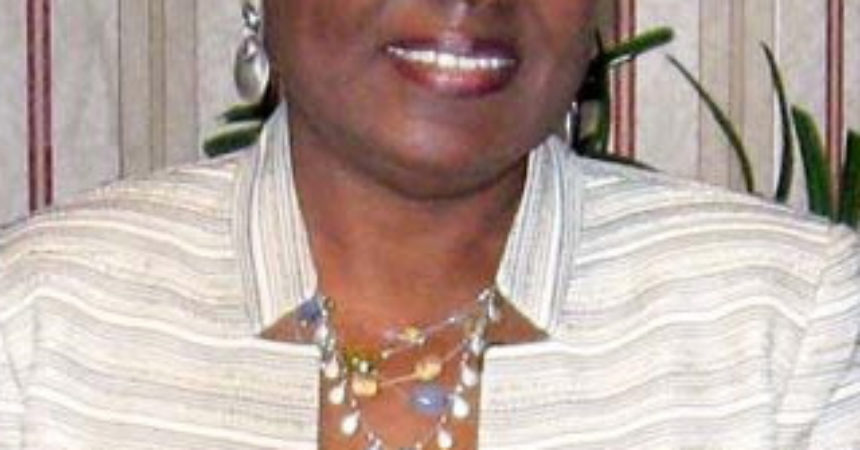
Churches must lead on issues of the poor

By Dorothy Iman- Johnson
Special to the Outlook
Unlike the leaders of the Civil Rights era who were activist pastors unafraid to speak out against injustice, many ministers today use the threat of religious involvement in politics to their tax exempt status as an excuse to remain silent while the vulnerable are victimized by unjust laws. At the same time, most White evangelicals openly declare their support for Roy Moore, Trump, Sessions, and other political leaders who are dead set on eliminating the poor’s access to the safety net to meet their needs and their exclusion from participating in basic rights under the Constitution.
Reverend William Barber II, president of Repairers of the Breach and co-chairman of the “Poor People’s Campaign: A National Call for Moral Revival”, is a Black religious leader who has not been afraid to step out on faith and speak truth to power much as Rev. Martin Luther King Jr. and the heroes of our past did during the 1950s and 60s. Appearing with other faith leaders in Birmingham last week to denounce this administration’s attacks on the poor and minorities, Rev. Barber described evangelical support for such policies in the following way.
“It is not the gospel of Christ, but the gospel of greed. It’s the religion of racism and lies, and not the religion of love”
He was explaining why 70 percent of White evangelicals in Alabama are poised to send an alleged pedophile to the U.S. Senate, instead of a scandal free leader, to preserve a GOP majority to eliminate healthcare and federal food programs, deny basic support for the poor, disabled, and elderly, while diluting minority voting power. No minister needs to endanger the church’s tax exempt status by telling people how to vote. They just need to show courage and demonstrate the standards set in the Bible for Christians by standing up for the vulnerable beyond the bounds of their church walls.
William Barber was born in 1963 the year that the 16th Street Baptist Church was bombed in Birmingham and the year President Kennedy was assassinated in Dallas, Texas. He was born in the South in a year of racial violence and political turmoil, and has become one of the vocal defenders of morality and social justice in our country. Barber is a living example of spiritual leadership in action, beginning in his youth. He was elected president of the NAACP’s Youth Council at age 15, his high school student body president at 17, and Student Government president of North Carolina Central University (NCCU) at age 19. He received his Master of Divinity from Duke University and his doctorate from Drew University. As president of the North Carolina NAACP and a member of the National Board, he gained national prominence when in 2013 he organized and began leading “Moral Mondays” civil rights protests at the North Carolina capitol against some of the worst voter suppression laws in the United States. The movement gained so much momentum, national media and support that it resulted in a court challenge that overturned laws shown to unfairly target minorities and the poor. Timothy Tyson, professor and historian, calls Barber “the most important progressive, political leader in this state (North Carolina) in generations”.
In 2014, he founded Repairers of the Breach, an organization that challenges the premise that the preeminent moral issues for which the evangelical and faith community should be concerned are prayer in schools, abortion and property rights. Rather, the organization is founded on the belief that moral public concern should be centered on equal protection under the law, the dignity of all people, and our Christian obligation to care for the poor and vulnerable. The organization’s website puts it more succinctly by stating, “Some issues are not left versus right, but right versus wrong”. And Rev. Barber has been unabashed in his national campaign to build an army of faith leaders to effectively speak truth to power and back it up with action “to rebuild and repair the moral infrastructure of our country”.
It should be as embarrassing to people of faith that Congressional Republican leadership, as well as Alabama evangelicals, openly admit that Roy Moore is morally bankrupt, but are so desperate for his vote to pass their equally bankrupt tax bill that they are willing to overlook his and their moral corruption. We need more William Barbers in Tallahassee and Florida in the tradition of Martin Luther King, Jr. and Rev. C.K. Steele, as our longstanding civil rights organizations seem to be losing strength. With churches on each corner, today’s religious leaders must be willing to venture beyond the four walls of their churches and minister to those in need in the broader community. Who is willing to step into this breach and give voice to the voiceless in our communities?
Please send comments to dotinman-johnson@hotmail.com.







